It’s that time of year again — Daylight Savings Time (DST) — when you’ll lose an hour of sleep. If you ever feel cranky, foggy, or just plain off after a poor sleep, you know all too well how sleep can affect your mood.
As a registered counsellor, I often hear from guys who aren’t getting the sleep they need to be happy, healthy and productive.
Here’s what I tell them about the connection between sleep and mental health, with tips for getting better Zs when life — and DST — affects your sleep schedule.
Not all sleep is created equal
Do you ever sleep eight hours and still wake up feeling like you got hit by a truck?
Men need between 7 to 9 hours of quality sleep for optimal health. But here’s the thing: it doesn’t matter how long you’re in bed if you don’t get quality sleep. If you toss and turn all night, wake up constantly, or never hit deep sleep, your brain and body don’t get a chance to charge fully, leaving you feeling groggy and tired.
What is quality sleep?
How much sleep is easy enough to figure out; here’s how to recognize quality sleep:
- You fall asleep within 30 minutes
- You mostly sleep through the night (with less than 20 minutes of being awake)
- If you wake up, you fall asleep quickly
- You spend at least 85% of your time in bed asleep
- You feel good mentally and physically when you get up
The benefits of quality sleep
Improves mood
You likely know when you’ve had a bad sleep. You wake up feeling cranky right from the get-go, and often, it goes downhill from there. Research shows that lack of sleep makes it harder for your brain to process positive emotions, making you cranky and irritable.
Improves focus and productivity
Attention span, decision-making skills and energy levels are all tied to quality sleep. New parents know this struggle all too well. When a fussy baby keeps you up all night, even simple things slip your mind, like turning off the oven, locking the door, or remembering if you even ate lunch. As a new parent, I remember thinking, “Wait… did I even eat today?” When you’re running on no sleep, your brain is just trying to survive.
Improves relationships
Quality sleep makes you a better person to be around. When you’re well-rested, staying positive, handling feedback, and enjoying conversations is easier. But when you’re running on empty? Moodiness and sluggishness can rub people the wrong way — whether it’s your boss, coworkers, or family.
The connection between poor sleep, anxiety and depression
Not getting enough quality sleep can negatively affect your mental health. But the reverse is also true: anxiety or depression can make it hard to get the proper amount of sleep. It’s a vicious cycle.
Depression can make you sleep too much, but that doesn’t mean you’re getting good rest. If you’re in bed for 12 hours and still exhausted, that’s a sign something’s off.
Anxiety — on the other hand — loves to show up when you’re trying to fall asleep. Your brain won’t shut up, and the more you stress about not sleeping, the harder it is to fall asleep.
How to tell you’re not sleeping enough
- Physical signs like puffy eyes and yawning
- Moodiness, poor coping skills, depression and/or anxiety, any of which can show up in the family environment or at work
- Suicidal thoughts
- Drinking too much coffee or smoking cigarettes to stimulate ourselves, and eating junk food and/or craving sugar to feel better in the short term
11 ways to get better sleep
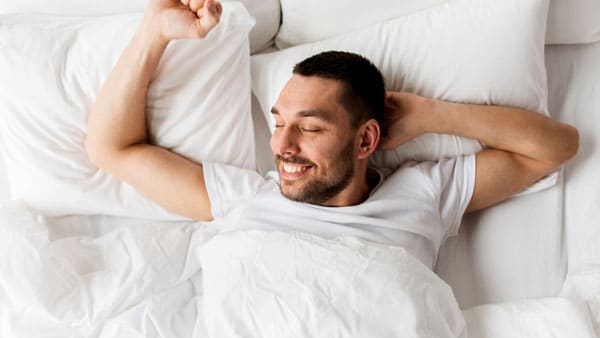
1. Keep the bedroom clean, dark, quiet and cool
Your bedroom is not a TV room or a tech hub. Everything in your bedroom should draw you to sleep — make the room clean, dark, quiet and cool. It’s like Pavlov’s dog; you’re training your body and mind to want to sleep when you’re in that room.
2. Write down your next day’s to-dos
A common sleep struggle that comes up in sessions is overthinking tomorrow’s to-do list. You lie in bed, running through everything you need to do, and the next thing you know, you’re stuck in an insomnia cycle, staring at the ceiling.
A simple fix? Write it down. Before bed, make a list of everything you’re worried about forgetting. That way, instead of stressing about “Oh no, we’re out of milk,” it becomes a simple task with a plan. Your brain can relax, knowing it’s handled.
3. Get up if you can’t fall asleep
If you’re lying in bed tossing and turning and can’t fall asleep within 30 minutes, sometimes getting up and doing a little light activity is better. This can help you relax and get you ready to fall asleep. Activity examples: read, meditate, pet your dog, you get the idea.
4. Get active
Exercise improves sleep by reducing the time it takes to fall asleep.
5. Follow a bedtime ritual
Go to bed around the same time every night, and you’ll sleep better. A wild weekend can throw your sleep routine off, so dial it back a bit for the sake of your sleep.
6. No caffeine after noon
Anything containing caffeine can wreck your sleep patterns, so switch to decaffeinated or caffeine-free drinks in the afternoon and evening. If you need an afternoon pick-me-up, eat protein or fibre to boost your focus and productivity.
Meanwhile, sleep teas like chamomile or peppermint can help you fall asleep more quickly and are a simple thing to add to your bedtime routine.
7. Skip the booze and butt out
Don’t be fooled by alcohol’s sedative effects. It can rob you of a good night’s sleep, so go to sleep sober. And if you need another reason to quit smoking, consider how it affects your sleep. The nicotine in cigarettes is a stimulant that can keep you awake and interrupt your sleep patterns.
8. Ditch the nap
Napping can be useful as a quick recharge. In fact, it’s common for doctors and nurses to take a power nap during a work break. But if you’re having issues with the quality of your nighttime sleep, skip the nap and see how you feel. Napping feels great but can mess up our sleep cycle and make it hard to fall asleep at night.
9. Avoid spicy and heavy late-night meals
Spicy food and heavy meals can disturb sleep, especially if eaten close to bedtime.
10. Talk to a counsellor
Speaking with a counsellor can help you get out of negative internal self-talk and break the anxiety loops it causes. This can help you build the skills to get quality sleep and handle your stress and anxiety better during the day.
11. Keep it simple
Choose one or two tips from this list that will work for you. It’s important to pick things that you’re willing to do so it doesn’t feel like it’s adding to your task list. Trying to do everything on this list may cause more stress, so don’t do that!
How sleep deprivation affects your physical health
A lack of quality sleep can affect your body and mind. Over a long period of time, it can:
- Increase your risk of cardiovascular disease, heart attack, and stroke
- Increase your risk of developing Type 2 diabetes
- Cause your hormones to get out of balance, leading to weight gain and mood changes
- Affect your sex drive due to low testosterone
- Affect your immune health, leading to a weakened immune system
Daylight Saving Time might be annoying, but the real issue isn’t just one lost hour — it’s the bigger picture of sleep and mental health. If you’re feeling off, exhausted, or not yourself, look at your sleep. Keep trying different tips and see what works best for you.
Do you have any sleep tips that work for you? Share in the comments below.
Get The Right Tool For The Job
Free mental health resources for men. Manage stress, anxiety and depression with Mindfit Toolkit.
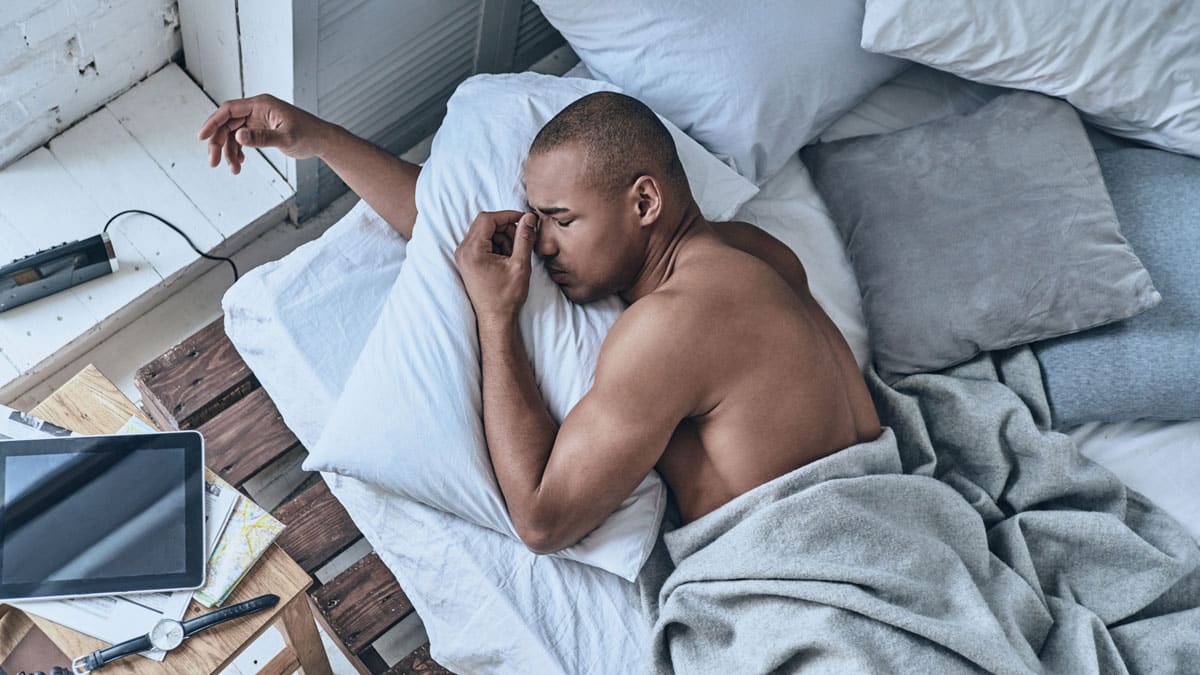

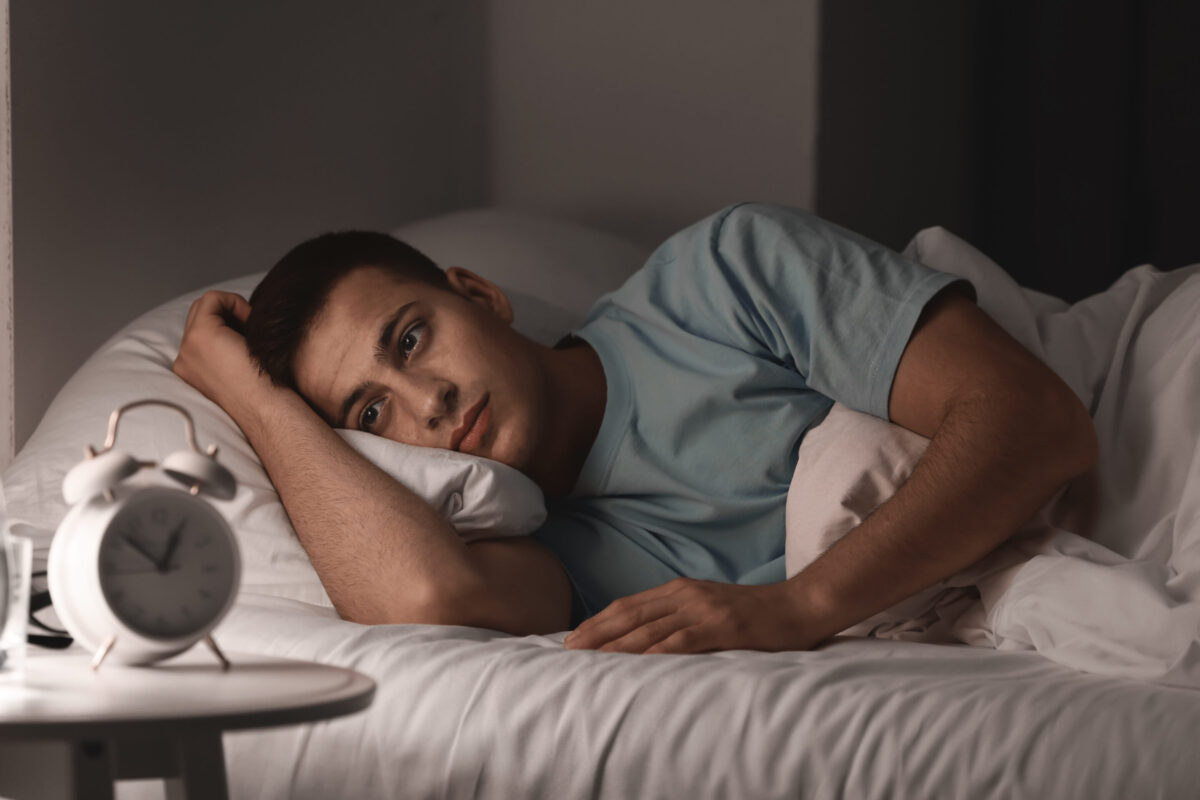
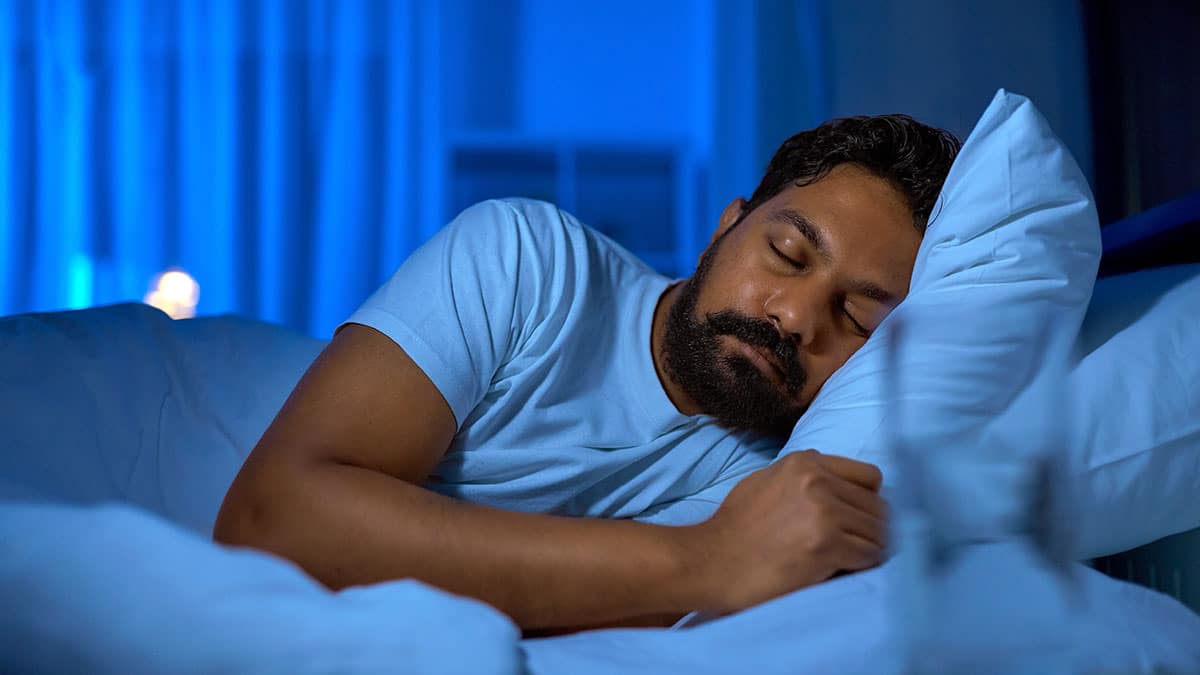
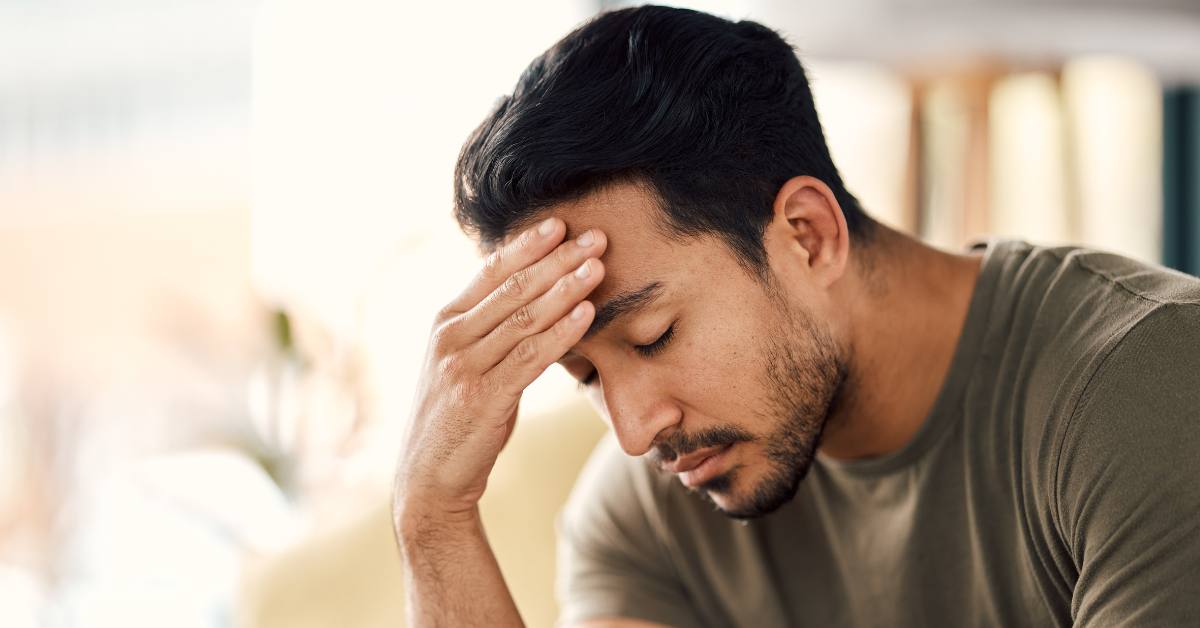

Good read. The part about writing down your next day’s to-dos is pretty good, think I will try that.